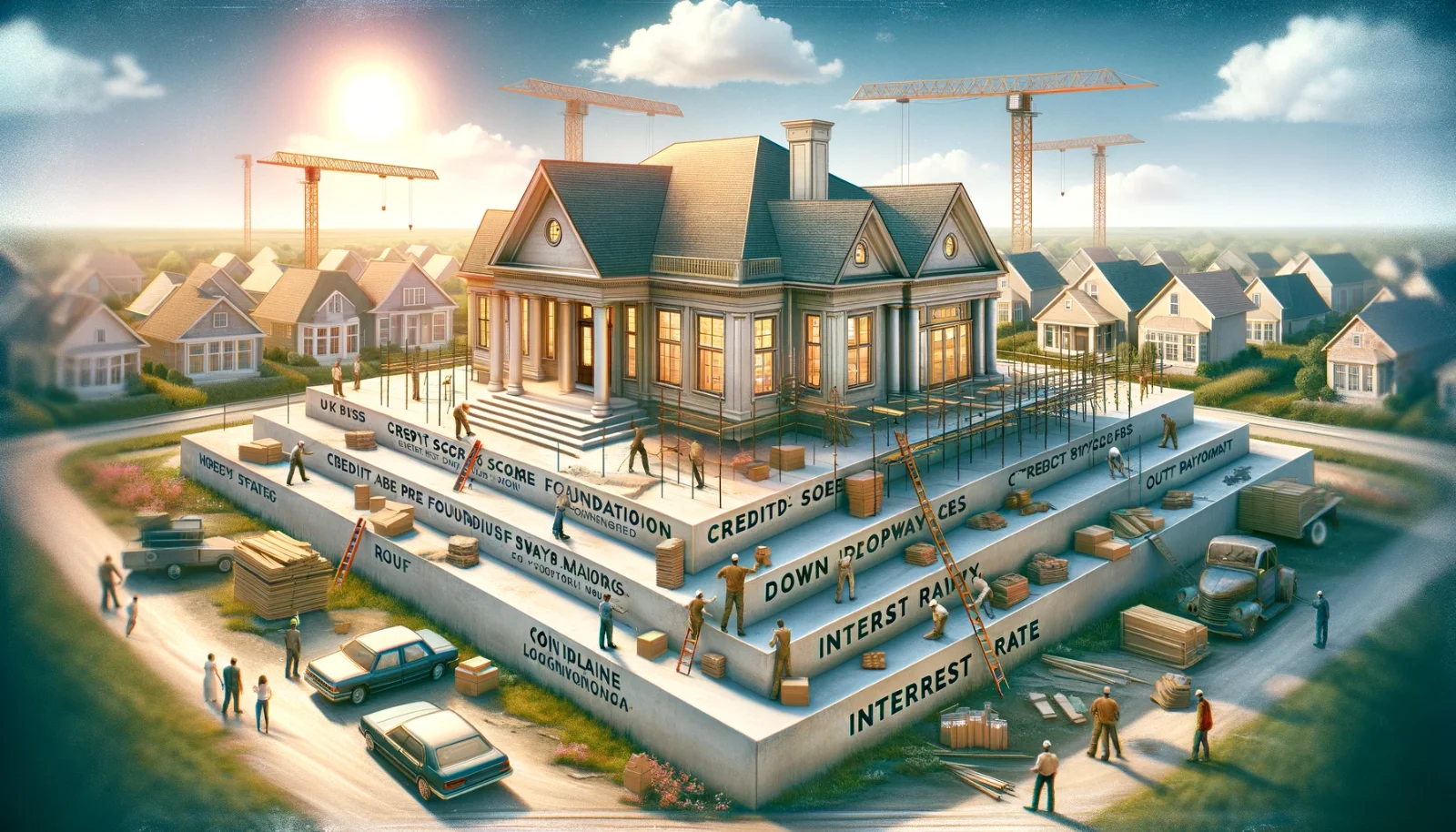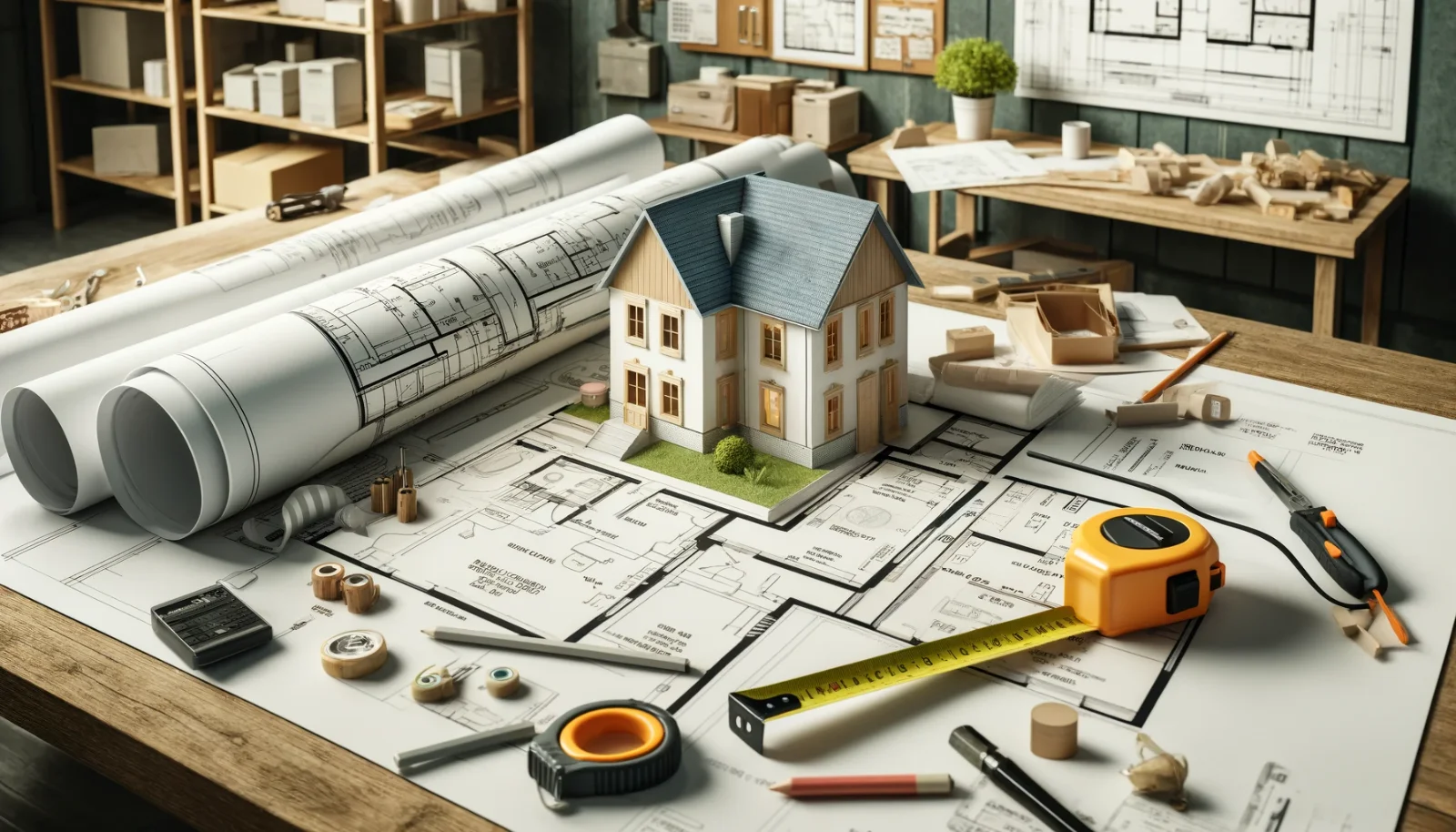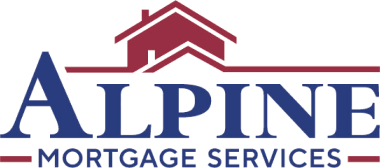Construction Loans - Construction Lender
Building your dream home can be one of the most exciting and fulfilling projects you'll ever undertake. However, the financial aspect of home construction can be daunting. Construction loan programs are designed to help you finance the building process, from purchasing the land to completing the home. At Alpine Mortgage, we offer construction and renovation financing. Whether you're planning to build your dream home or renovating an existing one, we can help. We can answer your questions, and guide you through the loan process. We'll be with you every step of the way from framing your front door to turning the key.
We're residential construction lending experts. We can answer your questions and your builder's questions so your project keeps moving smoothly from groundbreaking to housewarming. Our Construction-to-Permanent Loan is a one-time close loan. This means only one application, and you’ll get all the financing you need in one easy process.
What is a Construction Loan?

A construction loan is a short-term loan that provides the funds necessary to build a residential property. Unlike traditional mortgages, which are based on the home's market value and creditworthiness of the borrower, construction loans are based on the projected value of the property once it is built. Construction loans are typically issued for a period of one year, during which the home must be built and a certificate of occupancy issued. The loan disbursement process for construction loans is unique. Instead of receiving a lump sum, the borrower receives money in stages, known as "draws," as the construction project progresses. Before each draw is issued, an inspection is typically required to ensure that the project is on track.
Types of Construction Loans
There are several types of construction loans available, each tailored to different needs and scenarios:
Construction-to-Permanent Loan
Getting approved for a construction loan at most banks can be tricky. In many cases, two loans are required--one for construction and one for permanent financing. Usually you will have to pay closing costs on both loans, not to mention the extra paperwork, time and hassle involved. But at Alpine Mortgage, we offer a single close Construction-to-Permanent Loan (CTP) that combines both construction and permanent financing into one loan. This type of loan is ideal for borrowers who plan to occupy the home once it is completed. The loan initially covers the cost of construction, and upon completion, it converts into a permanent mortgage. This option offers the convenience of a single closing process, which can save money on closing costs.
A Construction-to-Permanent Loan allows for a construction period of 6 to 12 months sometimes more. Other options are also available. When your project is complete, the loan simply converts to a permanent mortgage – no extra costs! You only need to qualify one time which means only having to chase down documentation once compared to the typical process where the customer is qualified, the builder builds the home, then the lender requests documentation all over again to make sure the customer still qualifies. With the CTP loan, having qualified at the beginning of construction, the customer can shop for new furniture, buy a new car, change jobs, whatever they choose because they are already approved and do not need to be approved all over again 6 months to a year later! To help you manage your budget a little easier, you'll pay only interest on the money you've drawn. That means your payments will be less than they will be if you were paying principal, as well.
Construction-to-Permanent Loan Requirements
- Credit Score: A minimum credit score of 680, though higher scores are preferred.
- Debt-to-Income Ratio (DTI): Ideally below 45%.
- Down Payment: Typically 20% to 25% of the total loan amount.
- Builder's Credentials: Detailed information about an experienced, licensed builder.
- Detailed Construction Plans: Comprehensive construction plan, including architectural drawings, project timeline, and itemized budget.
Construction Only Loan
A construction only loan provides the funds needed to complete the building of a home, but the borrower must pay it off in full at the end of the construction period. This type of loan is typically used by borrowers who have significant cash on hand or who plan to secure permanent financing once the home is built.
Construction Only Loan Requirements
- Credit Score: Minimum credit score of 680 or higher.
- Debt-to-Income Ratio (DTI): Preferably below 45%.
- Down Payment: Usually 20% to 25% of the total loan amount.
- Builder's Credentials: Information about an experienced builder.
- Detailed Construction Plans: Complete construction plan with architectural drawings, timeline, and budget.
- Proof of Funds: Demonstration of the ability to pay off the loan at the end of the construction period or secure permanent financing.
Renovation Loan
Renovation loans are designed for homeowners who want to make significant improvements to their existing homes. Alpine Mortgage offers a variety of renovation loan programs such as FHA 203K Rehab Loan, Fannie Mae Homestyle Renovation Loan and the Freddie Mac ChoiceRenovation Loan. These loans can cover a wide range of renovation projects, from adding a new room to completely overhauling the interior.
Renovation Loan Requirements
- Credit Score: Generally a minimum of 580, but higher scores improve approval chances.
- Debt-to-Income Ratio (DTI): Should be below 45%.
- Down Payment: Varies, often around 5% to 20%, depending on the lender and the scope of the renovation.
- Detailed Renovation Plans: Detailed plans and budget for the renovation project.
- Contractor's Credentials: Information about the licensed contractor handling the renovation.
Owner-Builder Loan
Owner-builder loans are intended for borrowers who plan to act as their own general contractor. These loans can be challenging to obtain due to the increased risk, as lenders often prefer to work with experienced builders. Borrowers must provide detailed plans and demonstrate their ability to manage the construction project.
Owner-Builder Loan Requirements
- Credit Score: Higher credit score, typically 700 or above, due to increased risk.
- Debt-to-Income Ratio (DTI): Preferably below 45%.
- Down Payment: Usually 20% to 25% of the total loan amount.
- Experience: Proof of prior experience in construction or related fields. Detailed Construction Plans: Comprehensive construction plan with architectural drawings, project timeline, and itemized budget.
- Cost Estimates: Detailed cost estimates and potential subcontractor agreements.
Steps to Secure a Construction Loan
Securing a construction loan involves several steps:
1. Prequalification
Before you start shopping for a loan, get pre-qualified by completing our loan application online. This process gives you an idea of how much you can borrow based on your financial situation.
2. Documentation
Submit necessary documents, such as proof of income, employment verification, and details about the property. For a list of documents you will need to upload, see our Pre-approval Document Checklist. You may also need to provide detailed construction plans and information about your builder. Be prepared for a thorough review process.
3. Appraisal
The lender will order an appraisal to determine the projected value of the completed home based on the plans and specifications of the new home. This helps ensure the loan amount is appropriate for the property's anticipated value.
4. Approval & Closing
Once your loan is approved, you'll go through the closing process, where the loan terms are finalized, and funds are disbursed. Once this is complete, construction can begin.
Managing Your Construction Loan
Once your loan is approved and construction begins, it's important to manage the loan carefully:
1. Monitor Progress
Regularly check on the construction progress to ensure it stays on schedule and within budget. This can help prevent delays and cost overruns.
2. Requesting Draws
Request draws as needed, based on the construction milestones outlined in your loan agreement. Keep detailed records of all expenses and work completed.
3. Stay in Communication
Maintain open communication with your builder and lender throughout the construction process. Address any issues promptly to avoid complications.
Tips for a Successful Construction Loan Application
- Maintain a Good Credit Score: A higher credit score can help you secure better interest rates and loan terms.
- Save for a Down Payment: While some renovation loans require a low down payment, having funds available can improve your chances of approval and reduce your overall loan amount.
- Work with Licensed Contractors: Many lenders require that construction be completed by licensed and insured professionals. Choose contractors with a good reputation and experience in the type of work you need.
- Prepare a Detailed Plan: Outline your renovation goals, budget, and timeline. Provide detailed estimates and plans to your lender to show that you have a clear vision and realistic expectations for your construction project.
Benefits and Risks of Construction Loans
Understanding the benefits and risks of construction loans can help you make an informed decision:
Benefits of a Construction Loan
- Custom-Built Home: Construction loans allow you to build a home tailored to your specifications.
- Flexible Financing: You can finance the land purchase and construction costs in one loan.
- Interest-Only Payments: During construction, you may only need to make interest payments, which can ease cash flow.
Risks of a Construction Loan
- Higher Interest Rates: Construction loans often come with higher interest rates compared to traditional mortgages.
- Variable Rates: Many construction loans have variable rates, which can increase over time.
- Complex Process: The loan approval and disbursement process can be more complicated than traditional mortgages.
- Potential Delays: Construction projects can face delays, which may impact your loan terms and costs.
Tips for Choosing the Right Construction Loan

Selecting the right construction loan is crucial for a successful building project. Here are some tips to help you choose the best loan for your needs:
Compare Lenders
Shop around and compare offers from multiple lenders. Look at interest rates, terms, fees, and customer reviews to find a lender that meets your needs.
Understand the Terms
Read the loan agreement carefully and make sure you understand all the terms and conditions. Pay attention to the interest rate structure, repayment schedule, and any fees associated with the loan.
Consider Your Financial Situation
Make sure the loan terms are manageable within your financial situation. Consider your ability to make interest payments during construction and the impact on your finances.
Work with Experienced Professionals
Choose an experienced builder and work with a lender familiar with construction loans. Their expertise can help ensure a smooth process.
Plan for Contingencies
Build a contingency fund into your budget to cover unexpected expenses or delays. This can help prevent financial strain during the construction process.
Construction loan programs offer a valuable financing option for those looking to build their dream home. By understanding the different types of construction loans, the qualification process, and the steps involved, you can make informed decisions and successfully navigate the complexities of financing home construction. Whether you're building a new home from scratch or renovating an existing property, a construction loan can provide the financial support you need to bring your vision to life.
Building your dream home is an exciting journey, and with the right construction loan, you can ensure a smooth and successful project. Take the time to research your options, plan carefully, and work with experienced professionals to achieve your home-building goals. At Alpine Mortgage, our experienced loan specialists can guide you through the process and help you build your dream home. We offer construction loans in California, Colorado, Connecticut, Florida, New Jersey, New York, Ohio, Pennsylvania and Texas.
Call us today at (800) 876-5626 to speak with one of our construction loan specialists or click here to have one of our construction mortgage specialists contact you.
If you are interested in applying for a construction loan, you can apply online now.
Construction Loan FAQs
Interest rates for construction loans are usually higher than those for traditional mortgages, as they are considered higher-risk loans. The exact rate will depend on the lender, your credit score, and other factors.
Yes, but this typically requires an owner-builder loan, which can be more challenging to obtain due to increased risk. Lenders will look for a high credit score, prior experience in construction, and detailed plans and budgets.
The approval process for a construction loan can take anywhere from a few weeks to a few months, depending on the complexity of your project and the lender's requirements. Be sure to provide all necessary documentation and plans to expedite the process.
Construction loan funds are disbursed in stages, known as "draws," as the construction project progresses. Each draw requires an inspection to ensure the project is on track before the funds are released.
The builder will be paid as quickly as he can build the house. There are generally 4-6 disbursements made during the course of construction, although more disbursements can be set up on larger projects, fewer on smaller ones. As each level of construction is completed, an inspector will come out and verify the work. Within 3-5 days of his verification, the funds are over-nighted or wired to the builder’s account.
With our lender Construction-to-Permanent Loan program includes an interest reserve, which means that you will not have any payments out of pocket during the construction period. An interest reserve account will be incorporated within the loan amount. Depending on how quickly you use your construction funds; there should be sufficient funds within the construction loan to carry you through the entire construction period.
Yes, many construction loans allow you to finance both the land purchase and the construction costs.
Construction loans are typically issued for a period of 1 year, during which the home must be built and a certificate of occupancy issued. Some lenders may offer extensions if needed.
Construction delays can impact the loan terms and costs. It's important to plan for contingencies and maintain communication with your lender to address any issues that arise.
The lender usually includes a contingency reserve fund to cover unexpected expenses or delays. This can help prevent financial strain during the construction process.
Our renovation loans are specifically designed for homeowners who want to make significant improvements to their existing homes.
Construction Loan Resources
Get a Quick Quote
"*" indicates required fields
